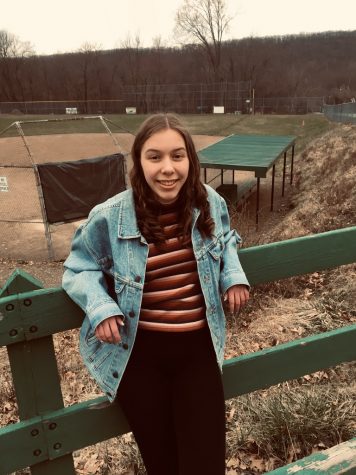Mercyhurst kicks off mask recycling initiative
March 15, 2022
Since the onset of the pandemic, landfills have been brimming with discarded paper masks. To try to combat the waste production, Mercyhurst has partnered with Lifecycle Revive, located in Brantford, Ontario, to recycle used face masks.
“Through some clever outreach from the Sustainability Club and some partnering with the Sustainability Office on campus, campus members will soon have the opportunity to pilot a recycling initiative from MEA Health out of Canada,” said Colin Hurley, executive director of Community Engagement.
The location of the box for mask recycling has not yet been determined, but is soon to be.
“The PPE collection box will be filled with disposable masks from campus and then shipped back to Canada for use in the company’s scale up of recycling operations and collections of accepted medical waste,” said Hurley.
Lifecycle Revive is a company that recycles medical waste as well as other personal protective equipment, or PPE waste. Their mission is to stop hospital waste from being incinerated or thrown into a landfill.
The company website says, “Lifecycle Revive will reclaim non-contaminated medical waste from Ontario’s hospitals and reprocess it into raw materials for all kinds of products.”
PPE waste includes syringes, surgical face masks, disposable blades and scalpels, face shields, surgical and isolation gowns, shoe covers, sanitizer containers, and waterproof aprons. The amount of each of these products that has been thrown away has increased greatly since the start of the pandemic.
A study regarding the amount of plastic waste since the Covid-19 outbreak began indicates that 4.4 to 15.1 million tons of mismanaged plastic waste (MMPW) has been generated from the start of the pandemic through November 2021, when the study was published. Roughly 87% of MMPW is from hospitals, while 78% of it comes from use by individuals.
According to the company website, the machinery used at Lifecycle Revive can divert over 1,000,000 pounds of material per month from the landfills.
Lifecycle Revive accepts surgical face masks, N95s, N99s, CN95s, CN99s, FN95s, FN99s and KN95 masks as well as face shields.
The masks, once collected, are sterilized and formed into pellets, which are then used to create “nonwoven textile for masks and disposable isolation gowns, and injection-molded items used in healthcare,” according to their website. The best part is, the items made from the pellets can be recycled too.
Mercyhurst is partnering with Lifecycle Revive in an attempt to reduce its carbon footprint as a school.
“I appreciate MU students being reflectively aware when it comes to the care of our earth and when considering the possibility of recycling the masks that have been like a part of our daily wardrobe during the pandemic,” said Hurley.
“The end of life of those blue medical masks or N95s worn during the pandemic has often ended with the landfill.”
Unfortunately, dirty masks cannot be accepted, so if you accidentally dropped your mask in the mud on a day when the snow was melted, it is best to throw that one in the garbage.
“Occasionally, we’ve all witnessed the unfortunate mask litter along the ground over the last two years,” said Hurley.
“Trash is often the destination in the medical field for lots of medical waste that heads to the landfill in the U.S.”
In addition to the mask recycling initiative, Mercyhurst is also partnering with the Trex program to collect plastic bags, film and bubble wrap. This will take place over the next six months, and the goal is to reach 500 pounds of plastic.
“Starting April 1, there will be three bins placed throughout centrally located campus buildings so employees and students can participate,” said Hurley.
“How much is 500 pounds of plastic bags? Approximately 40,000 bags! Student leaders from the Sustainability Club and other volunteers will take the collected bags to local receiving businesses and record weights over the next months.”
The plastic collected is used to make benches, which are then placed around the school.
“If MU reaches its goal, it will get another durable bench in Fall 2022 made from recycled plastic similar to the benches located near the Sr. Maura Smith garden on the hill behind Warde Hall along the Mercy Walkway,” said Hurley.
The partnership with Trex can provide an opportunity to get rid of any unwanted plastic bags lying around.
“As a reminder to the campus community: Waste Management does not allow the clear plastic bags to go into the recycling dumpsters! This is why campus education and compliance is crucial so that we avoid fines and maintain a cleaner recycling stream,” said Hurley.
“It’s been a few years since the last Trex program challenge before the pandemic, so this is a welcomed program to educate and also reward the campus community.”
Even if you are a person who doesn’t use much plastic, there is likely still some of it in your room, apartment or house that you aren’t using.
“While we don’t live in a post-plastic world where we can completely reduce our need for bags, wraps, or films, hopefully the Trex challenge opportunity can help us to be mindful of our resources,” said Hurley.
Though Earth Day is still over a month away, this mask recycling program can be a reminder that caring for the planet does not have to stop and end on a set schedule. It is never too early or too late to do something that will positively impact the planet.

